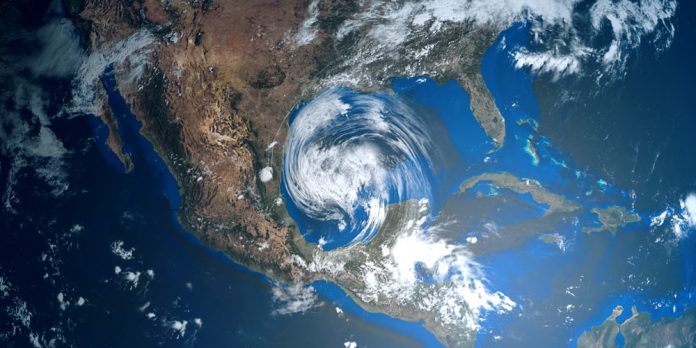Following the devastation last year caused by Hurricane Harvey and Hurricane Irma, small business owners are on high alert as hurricane season nears its peak.
By Parris Sanz
Small Business Owners know all too well the debilitating impacts natural disasters can have on a company. In fact, according to the Federal Emergency Management Agency (FEMA), almost 40 percent of small businesses never reopen their doors after a disaster. Here are several tips to consider that could help your business make it through hurricane season unscathed:
Protect your property
The most obvious concern for business owners when preparing for an incoming storm is their storefront. Without a structurally sound store, it will be hard to generate profits. Therefore, make sure the structure is properly equipped to handle a hurricane. This means installing shutters or plywood to protect windows and doors, having your roof thoroughly evaluated and anchoring any large furniture (bookcases, shelves, filing cabinets) to wall studs. Not only do you want to avoid replacing these items, but it is vital to protect access points from looters and minimize water damage.
While you can take these precautions well in advance of a storm, it is also wise and less costly to survey your property weeks or even days before a hurricane is inbound. Use this opportunity to prune branches or consult with an arborist about dead or dying trees that are adjacent to your building and may cause damage during the storm.
Secure data
Unfortunately, there is no way to guarantee your business will be safe from a storm. And while your storefront may be at risk when a hurricane is approaching, your data doesn’t have to be. Small business owners should back up all their files on a cloud or an accessible off-site location to avoid data loss. Depending on your needs, there are a variety of vendors that offer affordable cloud-storage systems to protect your data when a hurricane hits. If you value collaboration, Egnyte has a storage and file-sharing platform that lets businesses save their data locally and in the cloud. Or if you are simply interested in long-term storage, Zoolz provides a powerful cloud storage program that allows for unlimited users and servers. Whatever data storage solution you choose be sure to take time to fully understand the security protections they provide.
People come first
While infrastructure and data concerns are a priority, what is most important is your safety and the safety of your employees. Where possible, businesses should enable employees to work remotely when a hurricane is coming through. Create shared files for staffers to access, provide company laptops or even give employees assignments they can accomplish at home while they are waiting out the storm. Easily accomplishable tasks include telling a manager to outline rest-of-year goals for his/her team or telling employees to brainstorm marketing ideas for an upcoming product launch.
At the same time, just as small business owners are concerned about the welfare of their companies during natural disasters, the people in your community are equally concerned about their safety and that of their families. As people rush to ensure they have the essentials before a storm, position your business as a trusted and helpful resource within your community by providing useful products and services, if applicable. This could mean using your inventory of water and nonperishable food items for consumers to purchase, or if you are a contractor, let people know you are a friendly local face should they need household repairs.
It is paramount small business owners do all they can to best prepare for an incoming storm, because once it hits you will likely feel helpless. Being proactive and having a plan in place may not prevent the worst from happening, but it certainly will increase your business’s chances of survival.
Parris Sanz is the CEO of CAN Capital, a pioneer in alternative small business finance.
Hurricane stock photo by Sasa Kadrijevic/Shutterstock







